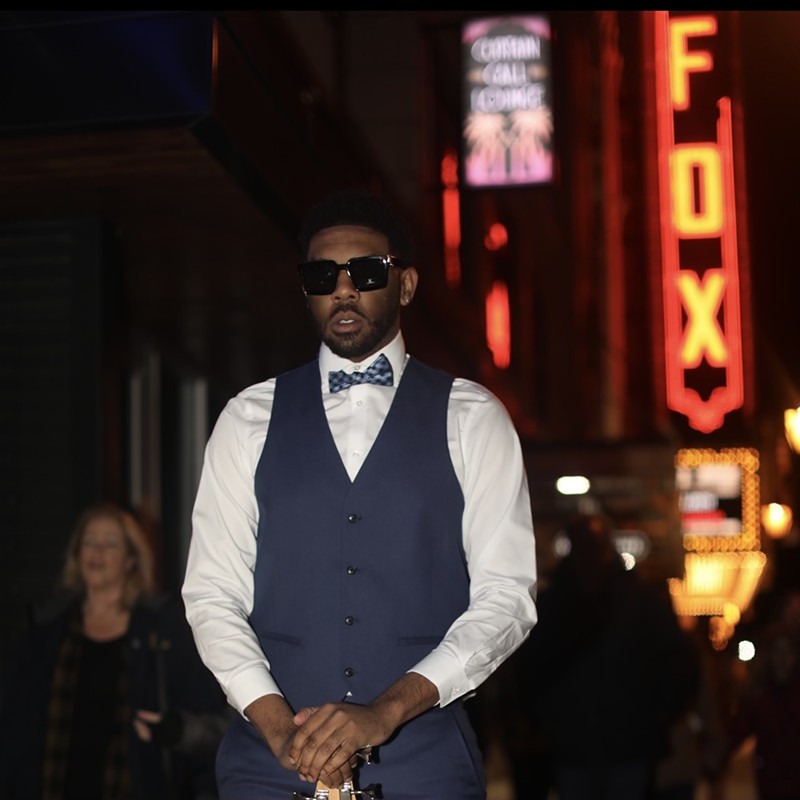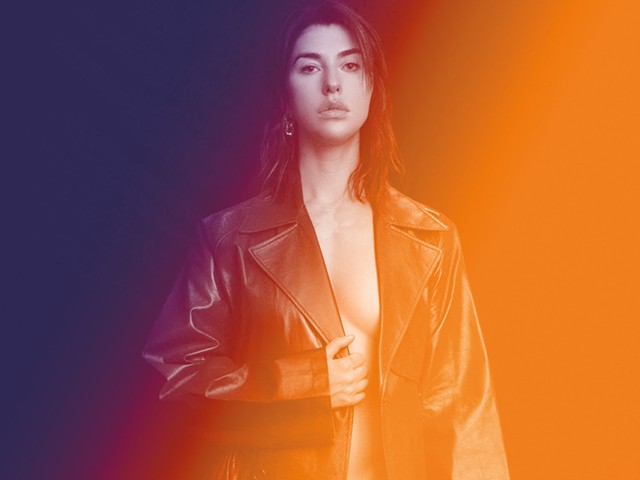For as long as he can remember, Dominique Dobbs has loved blues music — all its instruments, texture and emotion.
“I was always hypnotized with old-school samples,” he says. “Like blues samples and just old soulful-sounding melodies.”
But he loved rap music, too.
“I was also mesmerized with hard-hitting drums that you would hear in trap music,” he says.
When Dobbs became a producer, just a few years, he found himself melding them together. He didn't do it intentionally at first. "Subconsciously," he calls it — until he noticed that he'd found a special sound. Blues and rap together.
That sound is what makes up Hustle City Blues, the 25-year-old Dobbs’ first album under his last name. Dobbs created the beats, and St. Louis rappers and singers provided the vocals.
To his surprise, the album has blown up. Since its release on February 17, Hustle City Blues has reached number six on the Apple Music blues genre's top albums — it's tucked in between albums by Jimi Hendrix and The Black Keys.
“Hustle City Blues is the combination of [blues and rap],” he says. “You got your soulful beats, blues elements — bass guitar, saxophone, maybe flutes. And then you got your trap drums — you got your 808, you got your hi-hat rolls, and hard-hitting snare drum or kick drum.”
Growing up in St. Louis, though, Dobbs' talent wasn’t mixing beats. It was basketball. He starred at Hazelwood Central, winning the Suburban XII North Player of the Year. He later earned a scholarship to Lindenwood University.
In college, Dobbs discovered music production. He began toying with sounds to emulate legendary St. Louis producer Metro Boomin.
Soon, Dobbs was hooked. He was so hooked that his college coaches made a rule: Dobbs couldn’t bring his computer into his room on road trips because he would stay up too late making beats.
He hung up his jersey in 2019 to focus more on music and graduated from the University of Missouri-St. Louis.
“I've been doing something involved with music every day since summer of 2019,” he says.
Over the next few years, he bounced from basement to apartment to homemade studios. Along the way, he met LA4ss, a prominent St. Louis rapper, who has made countless hits over the years that have echoed throughout the city.
But LA4ss was drawn to Dobbs.
“He really picked up on that sound,” Dobbs says. “He was like, ‘Man, you finally found my sound.’”
That’s when Dobbs realized he had something unique. It’s not only the fact that he combines rap and blues. The music is deeply layered — to the point where it sounds like there are multiple competing songs running on one track, but somehow, they manage to fit seamlessly together.
“I make the music or the song feel like a movie,” he says. “That's what I tried to do throughout the whole project.”
Dobbs has collaborated with artists for a number of years. He works and manages a studio, Unplugged STL. But this is the first project full album that features his beats — and only his beats. He started over a month ago, compiling 40 to 50 songs during the time period, before landing on 12 final tracks.
Hustle City Blues is an album. But Dobbs also seems to use it as an adjective. It represents his sound, his upbringing, the city of St. Louis, its warts and its beauties.
“That’s why I ended up calling it Hustle City Blues because people say you can't spell hustle without STL,” he says. “So we hustle city. And then you got your blues elements with it, too. And then it’s also a play off of the St. Louis Blues.”
He wanted only St. Louis artists, such as LA4ss, Mbz Live and Merissa Elayne, to perform over his beats. Even the idea of blues, he says, represents St. Louis. The National Blues Museum is housed in St. Louis after all. But it’s more than that. Blues music, he says, is pain music, and that resonated with him. “It’s just long-term pain from living in the inner city of St. Louis,” he says.
He didn’t plan on making a hit album. He just wanted to share his work.
But when he woke up the morning after it was released, he found it top of the charts, as 14th of 200 blues albums listed worldwide.
“For me instantly to be top 14, top 15, that was crazy,” he says. “I wasn’t expecting it that fast.”
Before he released the album, he wasn’t sure what he would do next. But now he knows: drop another one.
Coming soon: Riverfront Times Daily newsletter. We’ll send you a handful of interesting St. Louis stories every morning. Subscribe now to not miss a thing.Follow us: Google News | NewsBreak | Reddit | Instagram | Facebook | Twitter






